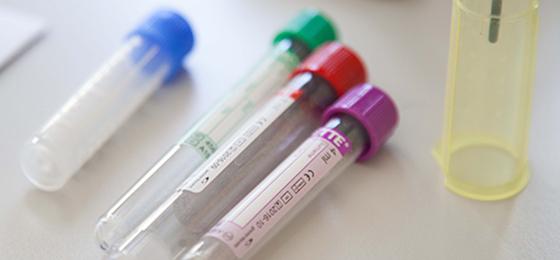23 Financial incentives only indirectly influence the quality of treatment for diabetes

Financial incentives to improve the quality of care for diabetes patients do not have a significant impact on the directly promoted quality indicators. However, an indirect effect of the intervention on other quality indicators that are not provided with financial incentives can be observed.
Project description (completed research project)
The randomized controlled trial was based on the FIRE database. 71 family doctors from 43 different practices and 3,838 patients with diabetes mellitus were included. The treating physicians of the intervention and control group received a bimonthly diabetes feedback report on two quality indicators: the percentage of patients who received at least one HbA1c measurement within the last 12 months and those who received a blood pressure measurement and met the recommended target value. Physicians in the intervention group were also informed that they received financial compensation of CHF 75 for each percentage point of improvement at the end of the intervention period. Four quality indicators were additionally included in the study but were not communicated to the physicians.
Background
Financial incentives can be used to improve the quality of medical treatment. In the absence of electronic patient files and the associated lack of standardized treatment data from Swiss general practitioners' practices, there has been little reliable knowledge about the effectiveness of such incentives in the outpatient setting. The FIRE database, in which more than 600 general practitioners in German-speaking Switzerland have voluntarily participated for 10 years, has now made it possible to investigate the effectiveness of such quality improvement measures.
Aim
The main objective of this study was to use quality indicators to investigate whether financial incentives for general practitioners lead to more effective treatment of diabetes. In addition, the relationship between the characteristics of treating physicians, practices and patients was examined with regard to the quality of treatment.
Results
The study could not demonstrate a significant effect of financial incentives to improve the quality of care for diabetes patients on the directly promoted quality indicators. The proportion of patients who received at least one HbA1c measurement within the previous 12 months and those who received a blood pressure measurement and met the recommended target value remained unchanged. However, there was an indirect effect of the intervention on two other quality indicators that were not financially stimulated. In addition, the characteristics of treating physicians, GP practices and patients showed no or little correlation with the quality indicators; they could explain only a small part of the observed variations. This indicates that important explanatory features were missing in the study.
Relevance / Application
Significance of the results for research
This is one of the few randomized controlled trials investigating the effect of direct financial incentives on the quality of care, and the first to be conducted in a European healthcare system.
Significance of the results for practice
Quality monitoring linked to financial incentives are on the rise and this study provides important insights into the effectiveness of such incentives.
Original title
Impact of financial incentives to improve quality indicators in diabetes patients
